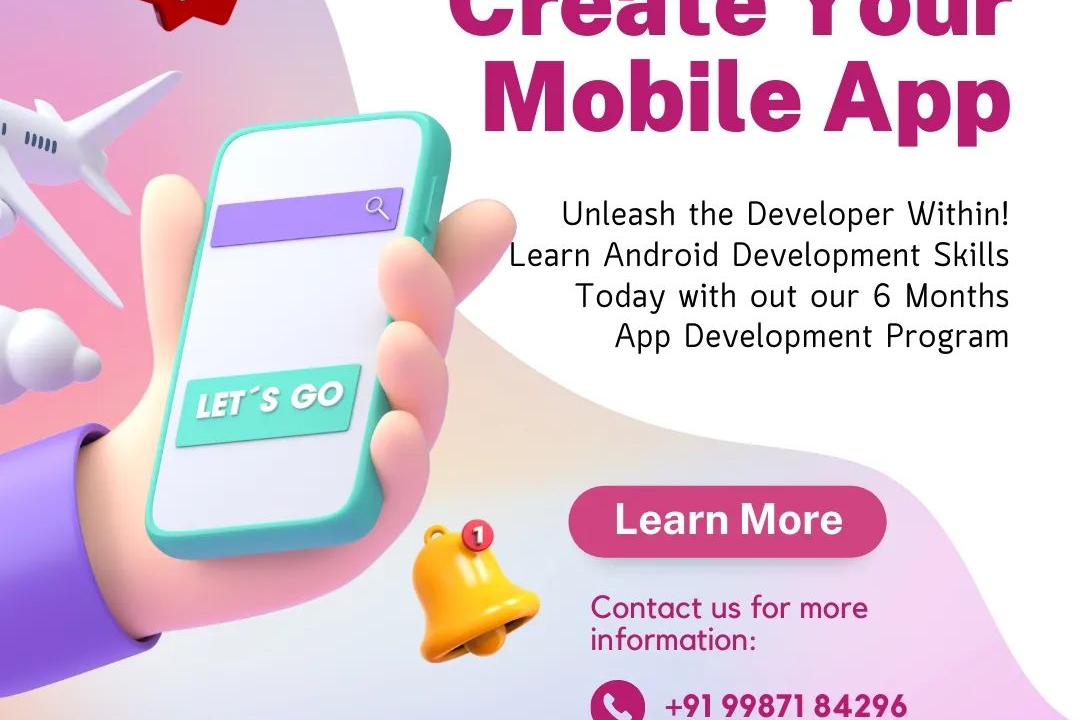Freelance android development
Independent Android Development Services
Freelance android development
Freelance Android development involves independent software developers creating mobile applications for the Android operating system, working on a contract basis rather than being employed by a single company. Freelancers in this field typically handle various aspects of app development, including design, programming, testing, and deployment, often collaborating directly with clients to meet their specific needs and requirements. This role offers flexibility in work hours and project selection, allowing developers to work with multiple clients simultaneously or focus on niche markets. Successful freelance Android developers usually possess strong skills in Java and Kotlin, familiarity with Android SDK and various development tools, and an understanding of user experience and design principles to create robust and engaging applications. Networking, self-promotion, and effective communication are essential for building a client base and maintaining a steady flow of projects in the competitive freelance landscape.
To Download Our Brochure: https://www.justacademy.co/download-brochure-for-free
Message us for more information: +91 9987184296
1 - Introduction to Android Development: Understanding the Android platform, its significance, and market share in mobile development. This sets the foundation for why learning Android development is a valuable skill.
2) Freelancing Overview: Explore the freelance economy, its growth, and how Android development fits into the gig economy. Discuss the benefits of freelancing, such as flexibility and control over projects.
3) Getting Started with Android Studio: Familiarize students with Android Studio, the official IDE for Android development. Cover installation, basic features, and project structure to give students a solid start.
4) Java and Kotlin Basics: Teach fundamental programming concepts in Java and Kotlin, the two primary languages for Android development. Highlight the differences and when to use each.
5) Building User Interfaces: Introduce XML layout files and the concept of responsive design. Teach students how to create dynamic and user friendly interfaces using Views, Layouts, and the ConstraintLayout.
6) Understanding Activities and Intents: Explain the lifecycle of an Android Activity and how intents enable communication between components. This is critical for navigation within an app.
7) Data Persistence: Cover various methods of storing data, such as Shared Preferences, SQLite databases, and Room Database, so students can handle user data effectively.
8) Networking and APIs: Teach students how to connect Android apps to the internet, make API calls, and handle JSON data. This is essential for building apps that interact with external services.
9) Debugging and Testing: Introduce tools and techniques for debugging Android applications. Discuss the importance of testing and demonstrate unit tests and UI tests.
10) Publishing on Google Play Store: Guide students through the process of preparing, compiling, and publishing their apps on the Google Play Store. Discuss best practices for app promotion and visibility.
11) Version Control with Git: Emphasize the importance of version control in software development. Teach students how to use Git and GitHub to manage code and collaborate on projects.
12) User Experience (UX) Principles: Introduce students to basic UX design principles to ensure their apps are intuitive and user friendly. Discuss the importance of user feedback.
13) Freelancing Platforms: Explore different platforms where students can find freelance work (e.g., Upwork, Freelancer, Fiverr). Discuss how to create effective profiles and proposals.
14) Building a Portfolio: Guide students on how to build a strong portfolio showcasing their projects and skills, which is crucial for attracting potential clients as freelancers.
15) Client Communication and Management: Teach soft skills for effective communication with clients. Discuss project management practices, handling contracts, and managing expectations.
16) Legal and Financial Aspects of Freelancing: Provide an overview of the legalities of freelancing, including contracts, invoices, and taxes. Discuss how to manage finances as a freelancer.
17) Continuous Learning and Community Engagement: Encourage students to stay updated with new technologies and trends in Android development. Highlight communities and resources for ongoing learning.
18) Advanced Topics in Android Development: For students who progress quickly, introduce advanced topics such as Jetpack components, dependency injection, or multi threading for mobile applications.
This comprehensive training program will equip students with the essential skills and knowledge to become successful freelance Android developers. Each point can be expanded based on the training duration and depth of content desired.
Browse our course links : https://www.justacademy.co/all-courses
To Join our FREE DEMO Session: Click Here
Contact Us for more info:
Flutter Training in Vasai Virar
JSON Parsing In Android
iOS Training in Dehri-on-Sone
data analytics courses near me
iOS Training in Sikandrabad











